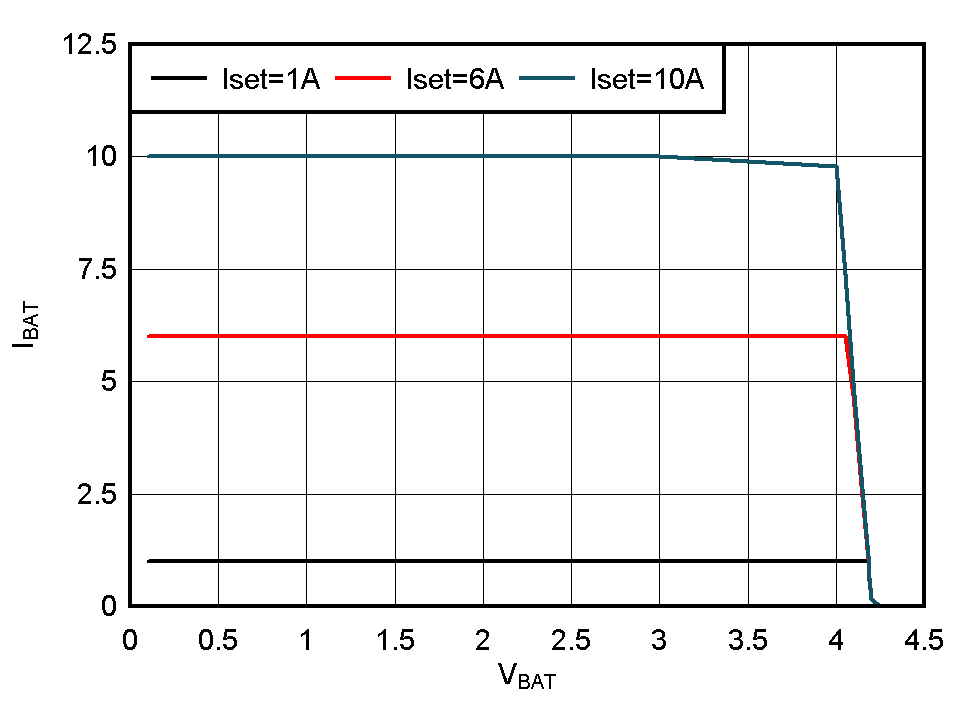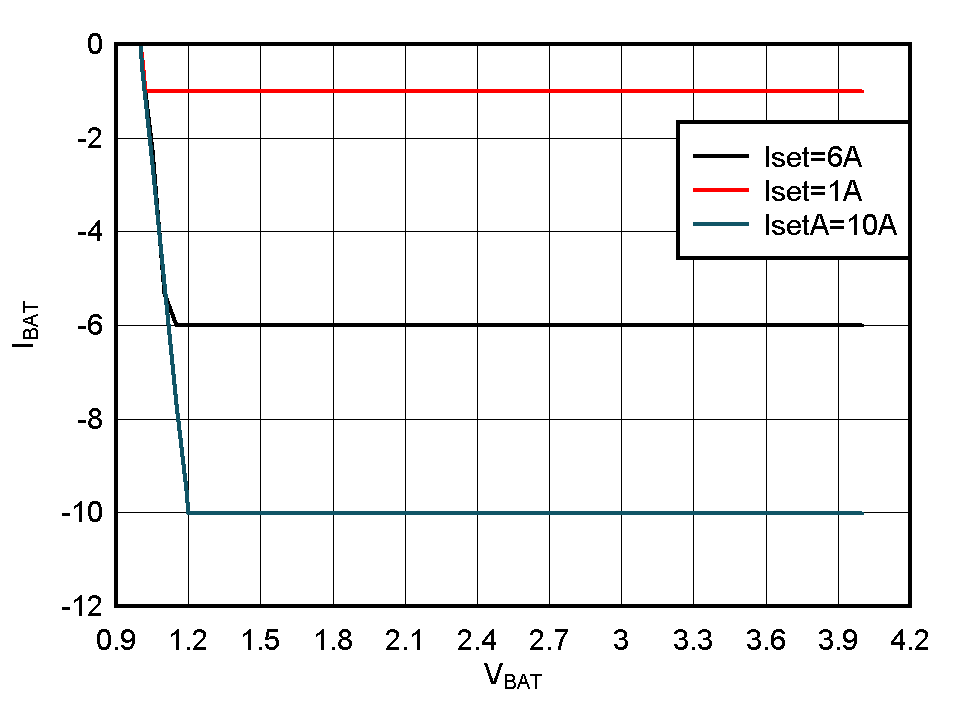TIDUEY0 November 2020
- Description
- Resources
- Features
- Applications
- 5
- 1System Description
- 2System Overview
- 3Hardware, Software, Testing Requirements, and Test Results
- 4Design and Documentation Support
- 5About the Author
3.4.4 CC, CV Transformation
The complete battery formation profile should include both the CC control and the CV control. The transition from CC to CV mode should be smooth. Figure 3-14 and Figure 3-15 show CV mode the transition from CC mode under different current settings and charging-discharging modes.
 Figure 3-14 Charge Mode CC to CV
Transition.
Figure 3-14 Charge Mode CC to CV
Transition.  Figure 3-15 Discharge Mode CC to CV
Transition.
Figure 3-15 Discharge Mode CC to CV
Transition.